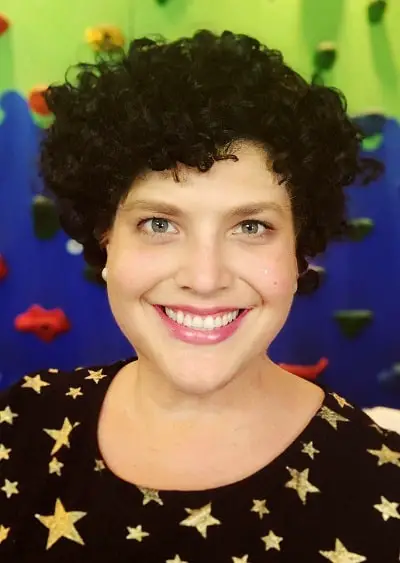Day in the life of
Pediatric Occupational Therapist – Chaya Gottesman

I am an occupational therapist. I am currently in private practice treating children in my sensory gym.
My days are very busy treating kids mostly after school from about 3-7 pm. Mornings and afternoons are dedicated to business/practice management and instructing OT students in their level two fieldwork experience.
The tasks involved in running a solo occupational therapy practice include:
Administration, billing, communicating with parents, teachers, and the Department of Education. My caseload consists mostly of school children ages 3-15 with developmental delays, neurodivergence, fine and gross motor weakness and coordination. Many of the children I treat are identified by their teachers due to poor handwriting skills. I utilize the sensory gym environment to elicit muscle coordination, strength, visual motor integration, special awareness, sensory integration, and much more.
The great thing about pediatric OT is that I get to play with kids all day. I use games, puzzles, crafts, swings, scooters, trampoline, and you guessed it – more. It really DOES just look like we are playing. But I am observing, evaluating, modifying how the child is interacting with the activity. I can make almost ANY activity that engages a kid into a therapeutic activity. I once had a very bright 12-year-old tell me “I’m not choosing anything! You make everything hard”. I like to call it “challenging” but it was early in my career, and I really WAS asking too much, too soon of him. This is called “grading” the task. My goal is to create the “just right” challenge where they work enough to gain skills but not so hard that they give up. There are, of course, kids who are more challenging to work with. Sometimes it’s because they feel incapable of being successful based on past attempts. I get those kids to trust me by giving them super simple challenges, so they feel very successful early on. Building confidence and trust develops willingness to take on more difficult hurdles. Other cases are paradoxically more difficult. These are the kids with less obvious obstacles to overcome. The nuances can be hard to spot for an inexperienced therapist.
I hire part time OTs to work alongside me in the gym. We do a great job working around each other and even use the interaction that can organically develop to include social skills and cooperation. Then there is the not so fun part of the job, documentation. Session notes, progress reports, and billing.
I also take on the clinical instruction of graduate OT students. I guide them to use clinical reasoning, appropriate documentation, activity analysis, and often also the social emotional aspects of working as an occupational therapist.
Overall, OT, in the area of pediatrics, is a challenging, fun, and very rewarding career.
Pros
So many pros. Occupational therapy is a rewarding job because we give our patients/clients the ability to participate in the activities that make their life meaningful. Whether it’s a developmental delay or disability, or post-illness or injury, we are trained to facilitate learning- beginning where they are at, strengthen muscles, improve cognitive function, manage social and emotional barriers, plus more. I get to play with children all day because the occupation of children is play!
OT is a profession with a very wide area of practice. I’ve become an entrepreneur due to these restrictions. Unfortunately, OT school does not cover business education so I’m not as profitable as I’d like to be. I’m educating myself as I go and more of us have recognized the need and are teaching each other how to make it work.
Cons
The cons regarding working in a medical setting are as follows. With productivity and number of patients seem to increase revenue out focus moves from truly providing our service which includes accounting for the patient’s internal motivation, creating therapeutic activities that are creative and a part of everyday life (the research tells us that participating in FUNCTIONAL activities increases the patient’s participation for better and quicker outcomes). In order to meet production expectations, we are forced to implement rote and non-preferred (but less time and materials necessary) interventions.
An OT’s salary does not always compensate for required documentation time or treatment planning. The same happens in a school setting. Sometimes it feels like the DOE (Department of Education) spends more money trying to save money while at the same time tying our hand in providing optimal care.
Occupational Therapists
assess, plan, and organize rehabilitative programs that help build or restore vocational, homemaking, and daily living skills, as well as general independence, to persons with disabilities or developmental delays. Use therapeutic techniques, adapt the individual's environment, teach skills, and modify specific tasks that present barriers to the individual.







.jpg)